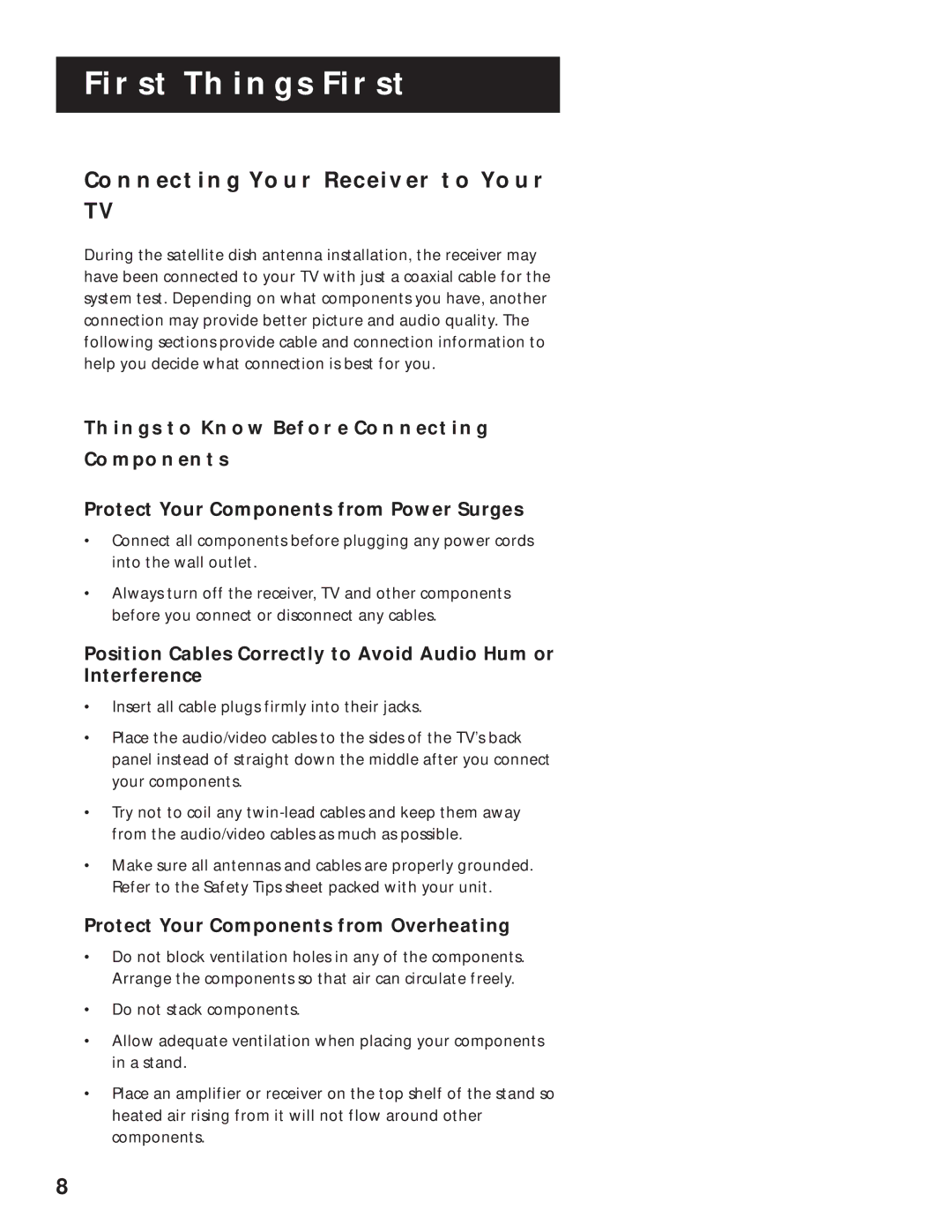FIRST THINGS FIRST
CONNECTING YOUR RECEIVER TO YOUR
TV
During the satellite dish antenna installation, the receiver may have been connected to your TV with just a coaxial cable for the system test. Depending on what components you have, another connection may provide better picture and audio quality. The following sections provide cable and connection information to help you decide what connection is best for you.
THINGS TO KNOW BEFORE CONNECTING
COMPONENTS
Protect Your Components from Power Surges
•Connect all components before plugging any power cords into the wall outlet.
•Always turn off the receiver, TV and other components before you connect or disconnect any cables.
Position Cables Correctly to Avoid Audio Hum or Interference
•Insert all cable plugs firmly into their jacks.
•Place the audio/video cables to the sides of the TV’s back panel instead of straight down the middle after you connect your components.
•Try not to coil any
•Make sure all antennas and cables are properly grounded. Refer to the Safety Tips sheet packed with your unit.
Protect Your Components from Overheating
•Do not block ventilation holes in any of the components. Arrange the components so that air can circulate freely.
•Do not stack components.
•Allow adequate ventilation when placing your components in a stand.
•Place an amplifier or receiver on the top shelf of the stand so heated air rising from it will not flow around other components.
8
